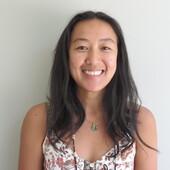
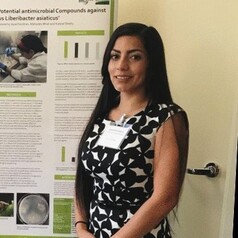
Jessica Dominguez
PhD Candidate in Agroecology, Florida International University
Jessica Dominguez obtained her Bachelor of Science in Biology from Florida International University in 2013. Soon after, she became a teacher at Academy for International Education Charter School where she taught middle school Math and science for 3 years, and during which time she earned her Professional Educator’s Certificate. In the summer of 2017, she began her Master of Science in Environmental Studies under professors Dr. Kateel Shetty, Dr. Krishnaswamy Jayachandran and Dr. Mahadev Bhat. Jessica completed her Master’s degree in Fall of 2019 and began her PhD in Spring of 2020. Jessica’s research (for both Master’s and PhD) is focused on the citrus greening disease, which is a deadly bacterial disease that affects all species of citrus. Jessica hopes to find effective antimicrobial compounds derived from natural sources (plants and/or microorganisms) to provide novel and sustainable treatment options for this devastating disease.
Less ![]()
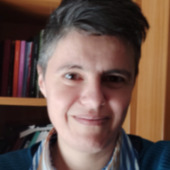
Jessica Falconi
Assistant Researcher, Centre for African and Development Studies, Universidade de Lisboa
Less ![]()
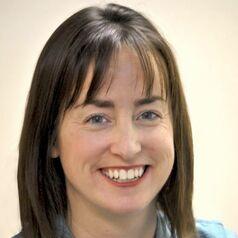
Jessica Faul
Research Associate Professor of Epidemiology, University of Michigan
Dr. Faul’s scholarly interests are at the intersection of epidemiology, biodemography, and aging. She is currently collaborating on a grant to identify gene-by-environment interactions and their influence on later life cognitive decline and is co-leading a study to characterize disparities in Alzheimer’s disease risk through analysis of polygenic risk and other epidemiologic factors. She is a co-investigator on the Health and Retirement Study and Harmonized Cognitive Assessment Protocol and has led the development of a workshop to train social scientists on the use of genomic data.
Less ![]()
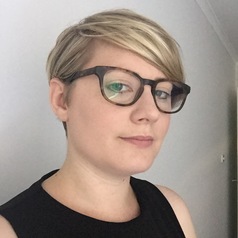
Jessica Ford
Early Career Researcher in Television, Gender, Film and Media Studies, UNSW Australia
Jessica Ford is an early career researcher, tutor and casual lecturer at the School of the Arts & Media, UNSW. Jessica is also the Co-Founder of the Sydney Screen Studies Network. She lectures and tutors in film studies, media studies and gender studies and has published essays on Buffy the Vampire Slayer, Community and Girls. Her research interests lie in contemporary American postnetwork television and television histories with a focus on gender and feminism.
Less ![]()
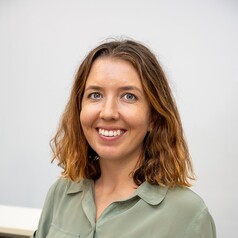
Jessica Geraghty
Senior Associate, Grattan Institute
Jessica is a Senior Associate in Grattan Institute’s Health Policy program. She previously worked at the Reserve Bank of Australia in various roles within the Economic Analysis, Payments Policy and Financial Markets departments.
Jessica holds a Master of International Economic Policy from Sciences Po and a Master of Science in Economics from the Stockholm School of Economics.
Less ![]()
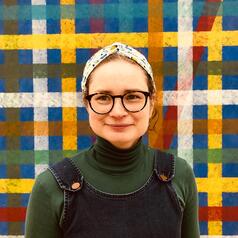
Jessica Hagen-Zanker
Senior Research Fellow, Overseas Development Institute
Jessica Hagen-Zanker is a Senior Research Fellow leading ODI’s migration research. Her research focuses on migration and development, migration decision-making, the links between migration and social protection, the humanitarian-development nexus as well as the analysis of social protection programmes and policies.
Jessica has designed and delivered numerous household surveys and has extensive mixed methods data collection experience in South Asia, Sub-Saharan Africa and the Middle East, as well as expertise in systematic literature reviews. Jessica has advised numerous governments and international organisations and has led policy analysis and contributed to policy dialogue in high-, middle- and low-income countries, including the UK, India, Jordan and Nepal.
Jessica holds a PhD in Public Policy from Maastricht University. She is also a Global Fellow at the Peace Research Institute Oslo (PRIO).
Less ![]()
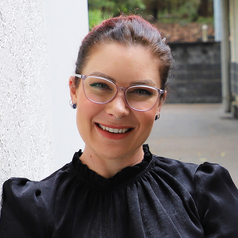
Jessica Harris
Lecturer Department of Accounting, Finance and Economics, Griffith University
Jess is a proud Darkinjung woman who works as a Research Fellow and lecturer at Griffith University. Jess offers comprehensive experience working with multiple stakeholders within local and State governments and NGOs. She is a behavioural scientist with extensive experience delivering change on several social issues. Her current work focuses on designing, implementing, and evaluating campaigns across various social problems, focusing on health and well-being and environmental contexts. She uses quantitative and qualitative research to co-create, build, and engage with stakeholders. She has led projects to increase breakfast consumption for workplace institutions. She has managed projects for local councils that focus on koala and domestic dog interactions, with the program successfully decreasing koala mortalities by 40% (Leave It). Her work now focuses on health and wellbeing in both the Indigenous and Institutional space.
Less ![]()
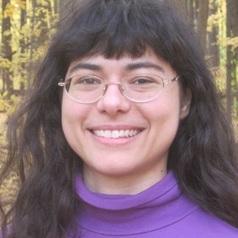
Jessica Heim
PhD researcher, University of Southern Queensland
Jessica Heim is currently undertaking PhD studies on light pollution, megaconstellations, and ethics.
Less ![]()

Jessica Hines
Visiting Assistant Professor of English, Whitman College
I am a professor of medieval literature and culture at Whitman College, specializing in the study of religion and gender and sexuality. My public-facing work has been published by Ploughshares, and my academic work has appeared in Exemplaria, the Journal of Medieval & Early Modern Studies, and Religion & Literature, among other venues.
Less ![]()
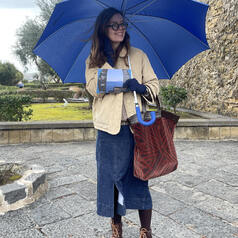
Jessica Hughes
Senior Lecturer in Classical Studies, The Open University
Jessica Hughes is Senior Lecturer in Classical Studies at The Open University. Her research focuses on the cultural and religious history of the southern Italian region of Campania, especially the area around Vesuvius and the Campi Flegrei. She is interested in how the traces of Greco-Roman antiquity co-exist and intertwine with other elements of local history and geology, particularly the material culture and practices of vernacular Catholicism. In 2024 she has a British Academy/Leverhulme Senior Research Fellowship - during this year, she is writing a book about the Catholic Shrine of Our Lady of the Rosary in the modern town of Pompeii, and its evolving relationship with the neighbouring archaeological excavations.
Less ![]()
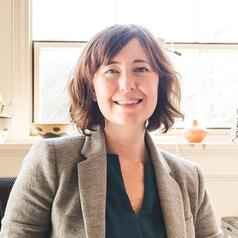
Jessica Jones-Smith
Associate Professor of Health Systems and Population Health, Epidemiology, University of Washington
Dr. Jessica Jones-Smith investigates socioeconomic causes and correlates of obesity risk in both high- and low/middle-income countries. Past and current research pertains to income- and ethnicity-based health disparities in obesity; early life risk factors for obesity; and the nutrition transition and increasing obesity prevalence in low- and middle-income countries.
Less ![]()

Jessica Kean
Lecturer in Gender and Cultural Studies, University of Sydney
I am lecturer in Gender and Cultural Studies at the University of Sydney, specialising in gender, sexuality and intimacy. In my work with the Boys Studies research group I explore the relationship between boys and feminism (learn more at https://boysresearch.org/)
Less ![]()
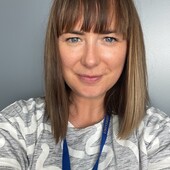
Jessica Kerr
Research Fellow, Adolescent Population Health and Obesity Epidemiology, Murdoch Children's Research Institute
Less ![]()

Jessica Knapp
Lecturer in Ecology, Trinity College Dublin
Jessica Knapp is an ecologist interested in how our landscapes can best support biodiversity and ecosystem functions, particularly pollinators and pollination services.
Knapp completed her DPhil with Juliet Osborne at the University of Exeter before moving to Lund University, Sweden, where she worked as a Researcher. Now, at Trinity College in Dublin, Knapp works as an assistant professor in Ecology.
Impact-driven, Knapp enjoys transdisciplinary research, where her projects combine ecological and social sciences to understand the drivers and mitigators of biodiversity decline.
Less ![]()
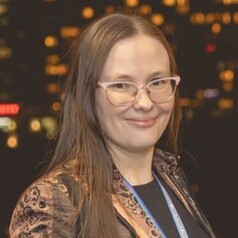
Jessica Korte
Senior Lecturer, School of Computer Science, Queensland University of Technology
Dr Jessica Korte advocates the best way to create good technology is to include end users in the design process. That technology can then improve lives and meet the real needs of the people who use it. When people who are disempowered or disabled by society establish what a technology should be, do, look like and behave then society as a whole will benefit from that technology. Jessica’s research currently serves to co-design sign language AI technologies with and for the Australian Deaf community.
Less ![]()

Jessica Kruk
Lecturer in Indonesian Studies and Linguistics, The University of Western Australia
Jess Kruk completed a PhD in Linguistics in 2015 and is currently working as a lecturer in Indonesian Studies and Linguistics at UWA, research focuses on identifying and addressing the exclusion of marginalised people from social, economic, and cultural life in the Asia Pacific. Her current projects include an investigation of the languages and identities of ethnic Chinese minorities in Indonesia, an exploration of how extreme metal musicians in the Asia Pacific write 'metal' lyrics using non-English languages, reimagining, and reinvigorating Indonesian language teaching and enhancing language communication to fight prejudice in the general public.
Less ![]()
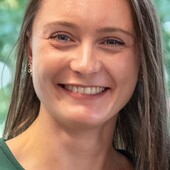
Jessica Large
Doctoral Researcher, Centre for Lifestyle Medicine and Behaviour (CLiMB), Loughborough University
Less ![]()
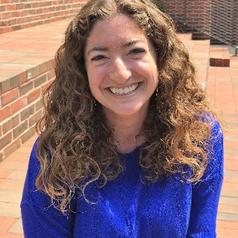
Jessica Lasky-Fink
Research Director of the People Lab, Harvard Kennedy School
Jessica Lasky-Fink is a Research Director of The People Lab. Much of her research focuses on using insights from behavioral science to improve the delivery of government services and programs, with a particular focus on the social safety net. Jessica holds a MA in International Economics and Development from Johns Hopkins SAIS, a BA in Political Science from the University of California, San Diego, and is currently a PhD Candidate in Public Policy at the University of California, Berkeley.
Less ![]()
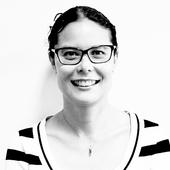
Jessica Lee
Senior Lecturer, School of Human Movement and Nutrition Sciences, The University of Queensland
Less ![]()
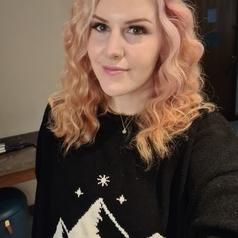
Jessica Lloyd May
PhD Candidate in History, University of Nottingham
Jessica Lloyd May is a doctoral researcher in History and Folklore at the University of Nottingham, specialising in the exploration of community, identity and history through folk customs. Her research particularly focuses on the Randwick Wap of Gloucestershire as a study of the complexity and value of folk customs as both a part of community life, and as a unique historical source. This study spans the documented history of the custom into present day, bringing historical narratives together with contemporary oral histories for a comprehensive view of a folk custom.
Less ![]()

Jessica Mannette
Research Assistant, Department of Psychology, Saint Mary’s University
Jessica is an Anthropologist and has worked with non-profit service organizations serving community members experiencing food insecurity in New Zealand, and people living with HIV in Nova Scotia. She has also collaborated on work surrounding testing for sexually-transmitted and blood-born infections in Atlantic Canada. She is currently a Research Assistant at Saint Mary's University, and a Project Manager at the Canadian Center for Vaccinology; a collaboration of IWK Health, Nova Scotia Health Authority, and Dalhousie University, in Kjipuktuk (Halifax), Miꞌkmaꞌki (Nova Scotia).
Less ![]()
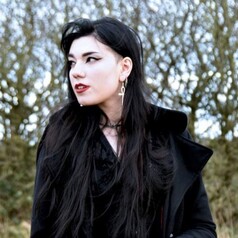
Jessica McCoy
PhD Candidate, Department of Geography and Environmental Sciences, Northumbria University, Newcastle
Jessica, Newcastle born and bred, is a NERC-funded PhD candidate. They are studying at both Northumbria and Newcastle University under the ONEPlanet Doctoral Training Partnership. Jessica’s project focuses on the reconstruction of Oligocene to Miocene terrestrial ecosystems and climates on the northwest edge of Europe. By studying this, Jessica’s project aims to contribute to the understanding of the impact of oceanic dynamics on terrestrial palaeoenvironments.
Less ![]()
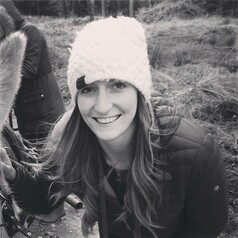
Jessica Mee
Senior Lecturer in Sport and Exercise Science, University of Worcester
Jessica is a Lecturer and Applied Sport Scientist who has research interests aligned to optimising athlete and occupational workers for competing and working in hot climates using novel, sustainable, accessible and effective strategies. She has a particular interest in understanding the additional challenges female endurance athletes may face associated with hormonal fluctuations during the menstrual cycle. Jessica is a British Association of Sport and Exercise Science (BASES) accredited Sport Scientist has a range of experiences working with and preparing national and international level athletes for competition.
Less ![]()
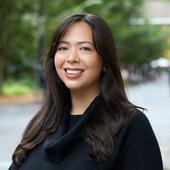
Jessica Penney
Assistant Professor, Department of Sociology, Toronto Metropolitan University
Less ![]()
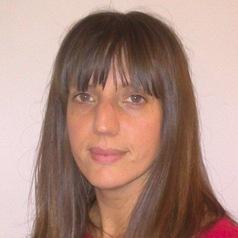
Jessica Pinchbeck
Lecturer in Sport and Fitness, The Open University
Jessica is a Senior lecturer in Sport and Fitness at the Open University. She has worked as an academic at the university since October 2011. Prior to that she worked as an associate lecturer at the Open University since 2008 and as a lecturer in sport and exercise science within the FE sector.
Jessica's specialist area is sport and exercise sociology in particular the topics of female sports participation and the family in sport. Jessica's research interests lie within the sociocultural influences of the family within sport participation. Jessica PhD investigated the socio-cultural influences on female participation in netball across the lifespan.
Less ![]()
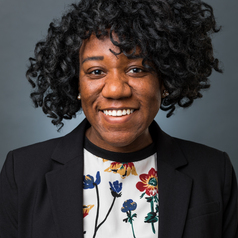
Jessica Ray
Professor of Civil & Environmental Engineering, University of Washington
Dr. Jessica Ray (she/her) is the Robert O. and Irene V. Sylvester Family endowed assistant professor in Water Resources within the Department of Civil & Environmental Engineering at the University of Washington.
Ray joined the University of Washington in January 2019. Previously, Ray was a Miller Institute Postdoctoral Fellow at the University of California, Berkeley investigating low-cost engineered adsorbents for removal of trace contaminants in urban stormwater. This research was part of the NSF Reinventing the Nation's Urban Water Infrastructure (ReNUWIt) engineering research center at Berkeley.
Dr. Ray received her B.S. degree in Chemical Engineering from Washington University in St. Louis in 2009. Upon graduation, Ray remained at Washington University in St. Louis to obtain a M.S. degree (2010, funded by the NSF GK-12 Graduate Research Fellowship) and a Ph.D. in Energy, Environmental & Chemical Engineering (2015, funded by the EPA Students to Achieve Results (STAR) Fellowship).
During her Ph.D., Ray employed surface chemistry techniques to investigate interfacial reactions of nanomaterials in water. At the University of Washington, Ray's research program utilizes a multidisciplinary platform that bridges materials science, and environmental and surface chemistry to increase urban water supply sustainability.
Less ![]()

Jessica Robichaud
PhD Student, Aquatic ecology, Carleton University
Jessica Robichaud is a graduate student at Carleton University. She completed her Master's degree studying the overwintering ecology of freshwater turtles in 2022, and is now pursing her PhD studying marine fish ecology in the Caribbean.
Less ![]()
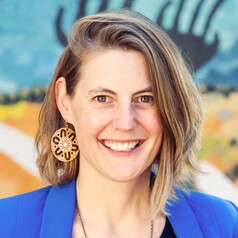
Jessica Shipman
Senior lecturer, Flinders University
Jessica Shipman is a health sociologist from the UK with experience of research, teaching and advocacy in gender, health, and affirmative practice. Jessica’s main interests are gender, sexual health, families and relationships, and young people’s access to care and care transitions.
Less ![]()
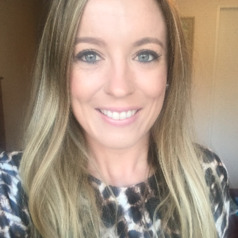
Jessica Shuker
Initial Teacher Education Lecturer , University of Canterbury
ITE Lecturer, University of Canterbury
Less ![]()

Jessica Terruhn
Senior Research Fellow, University of Waikato
I am a sociologist with a research interest in racism and settler colonialism, especially at their intersections with housing and urban inequality and diversity. Over the past decade I have worked as a lead researcher on several multi-year research programmes. I am currently Senior Research Fellow on the WERO Working to End Racial Oppression research team.
Less ![]()

Jessica Trounstine
Professor of Political Science, Vanderbilt University
Jessica Trounstine earned her Ph.D. in Political Science from UC San Diego in 2004 and is a Professor of Political Science at Vanderbilt University.
She previously served as the Foundation Board of Trustees Presidential Chair of Political Science at UC Merced and as assistant professor of politics and policy at Princeton University. She is the author of two award winning books, Segregation by Design: Local Politics and Inequality in American Cities (Cambridge University Press) and Political Monopolies in American Cities: The Rise and Fall of Bosses and Reformers (University of Chicago Press), and numerous articles and book chapters.
Professor Trounstine's work studies the process and quality of representation in American democracy. She is focused on the ways in which formal and informal local political institutions generate inequalities. Professor Trounstine's scholarship is mixed-method; reliant on historical analysis, case studies, experiments, and large-n quantitative analyses. She has served as a consultant for the U.S. Department of Justice, city governments, and various community organizations; and serves on numerous editorial and foundation boards.
Less ![]()
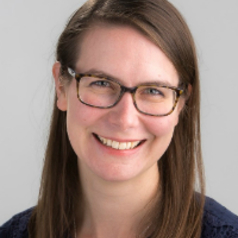
Jessica Walsh
Lecturer in Conservation Science, Monash University
I'm a conservation ecologist, researching how to improve the effectiveness of conservation management and policy for threatened species and ecosystems. I specialise in evidence-based conservation, knowledge exchange, cost-effectiveness analyses, and decision-support tools.
Less ![]()
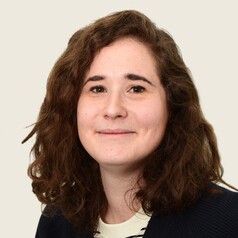
Jessica Wax-Edwards
Marie Curie Postdoctoral Fellow, University College Cork
Jessica Wax-Edwards is a Marie Skłodowska-Curie Action Postdoctoral Fellow at the University College Cork. Previously an Honorary Research Fellow at Royal Holloway University of London, her research interests include memory, violence and politics in twentieth century and contemporary Mexican visual culture. She has published articles on Latin American fiction and documentary cinema, graphic art and photography and her first monograph Documenting Violence in Calderón’s Mexico: Visual Culture, Resistance and Memorialisation was published 2023. Jessica was also a selected participant in the 8-month AHRC-funded mentorship scheme Doing Women’s (Global) (Horror) Film History (DWGHFH); her resulting short film Storylines___ was published 2024.
Less ![]()
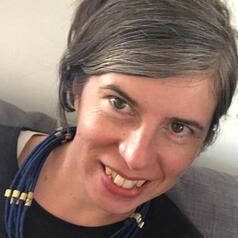
Jessica Whyte
Scientia Associate Professor of Philosophy and ARC Future Fellow, UNSW Sydney
I am currently an Australian Research Council Future Fellow, working on economic sanctions after the Cold War. I am interested in understanding why the period of economic freedom also saw the intensification of economic coercion, particularly in the form of economic and financial sanctions. My research examines the relationship between liberal ideas of economic peace and the reality of economic warfare, and asks how sanctions came to be understood as a non-violent alternative to war. This current project builds on my most recent book The Morals of the Market: Human Rights and the Rise of Neoliberalism (Verso, 2019), which examined the role of neoliberal thinkers in promoting a distinctive version of human rights in the second half of the twentieth century. My broader research interests include human rights and humanitarianism, political philosophy and the relation between international law and politics.
Less ![]()
- Market Data























